Universitas Gadjah Mada has implemented several disposable policies in relation to extension services as the university’s commitment and collaborative efforts to sustainability.
The Circular Letters issued by the university includes:
a. Circular Letter on Waste Management in UGM (Circular Letter Number 9034/UN1.P/OT.01.03/2024)
This Circular Letter includes:
- Regulation on provisions for faculties/schools/working units in UGM that have canteens or food and beverage stalls
- Regulation on the provision of services from partners such as catering, canteens, and construction providers that they are requested to manage their own waste.
- Regulation of potential flower wreaths and decorations in on-campus ceremonies, events and functions. Flower wreaths and decorations must not be left once the events or functions are over. Vendors, recipients, or senders of flower arrangements are required to take them outside the UGM areas.
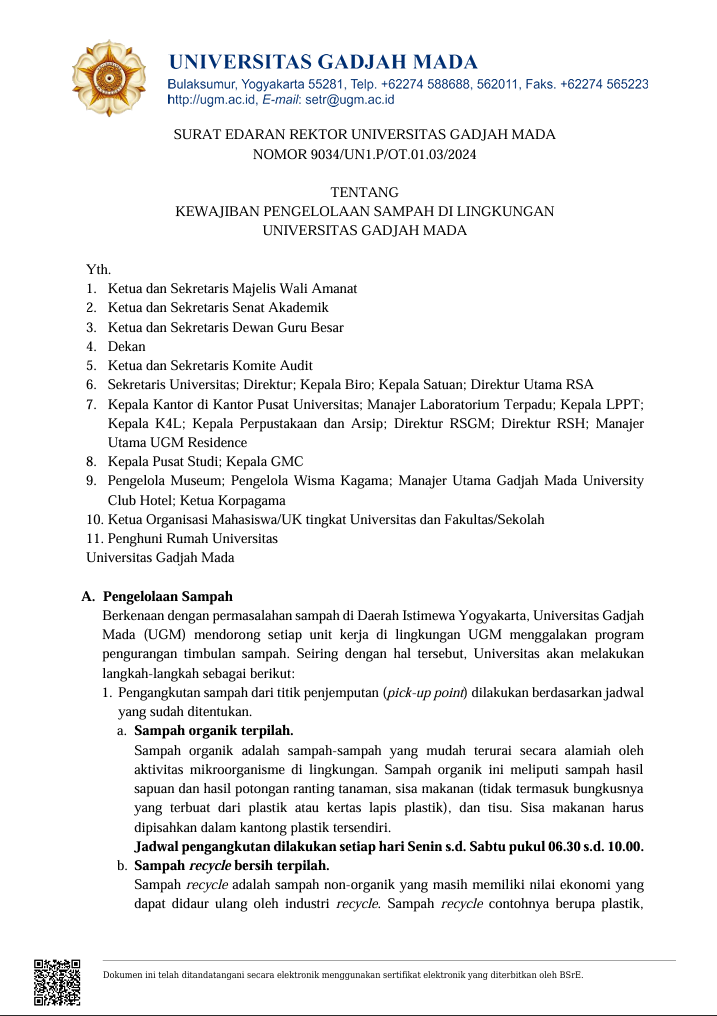
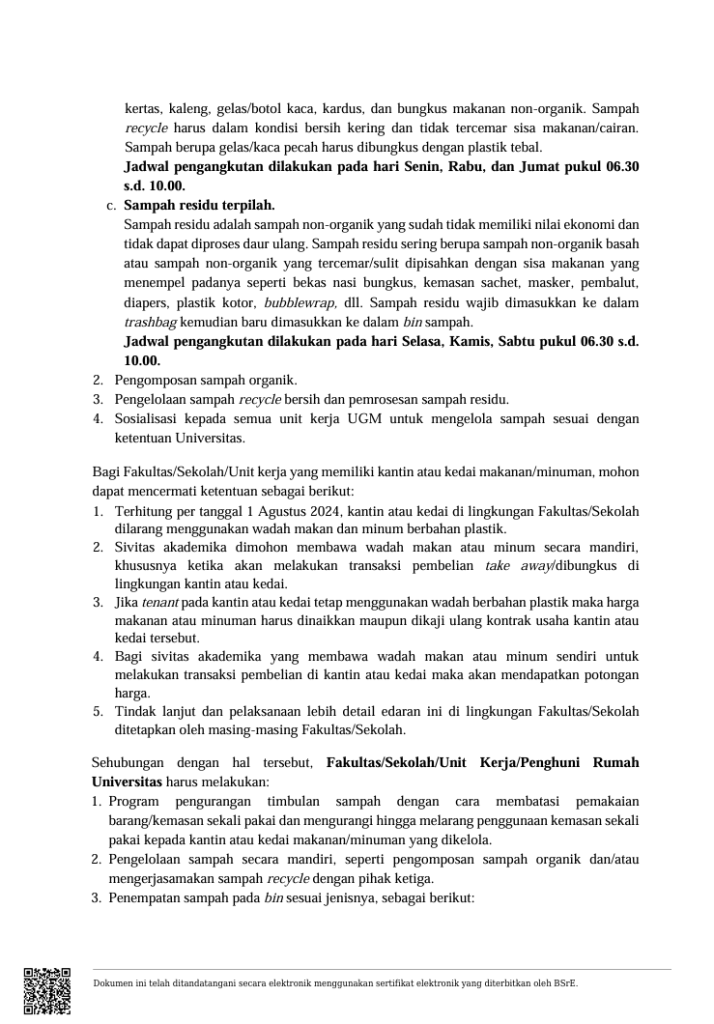
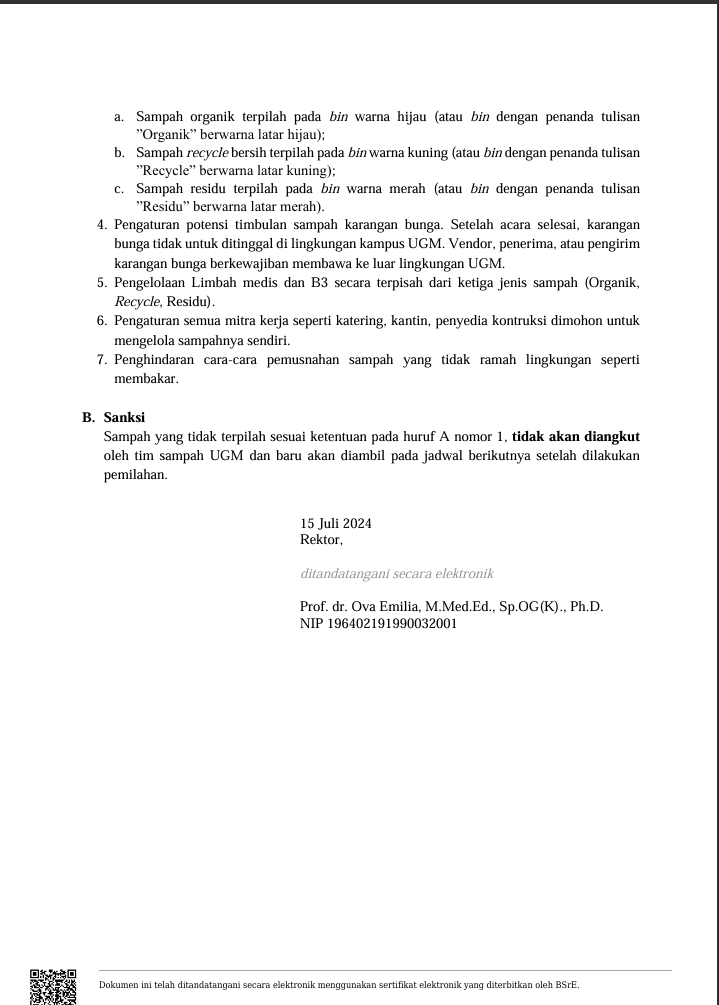
b. Circular Letter on Efforts to Reduce Waste in Serving Food and Beverages in the Universitas Gadjah Mada
Circular Letter signed by the Vice-Rector for Human Resources and Finance (Circular Letter Number 6627/UN1.P4/PL.00.00/2024) concerning policies encouraging waste reduction in food and beverage services on the UGM campus. The issuance of this letter is not only proof of UGM’s commitment on reducing food and plastic waste on campus but also the stronger commitment of UGM towards a broader solution amidst a waste emergency in Yogyakarta Province. One of the biggest annual events administered in UGM was PIONIR Gadjah Mada from 29 July to 3 August 2024, an induction and orientation week of UGM new students. Having around 40 thousand new students, PIONIR mandated the new undergraduate students to bring their eating utensils for snacks and lunch.
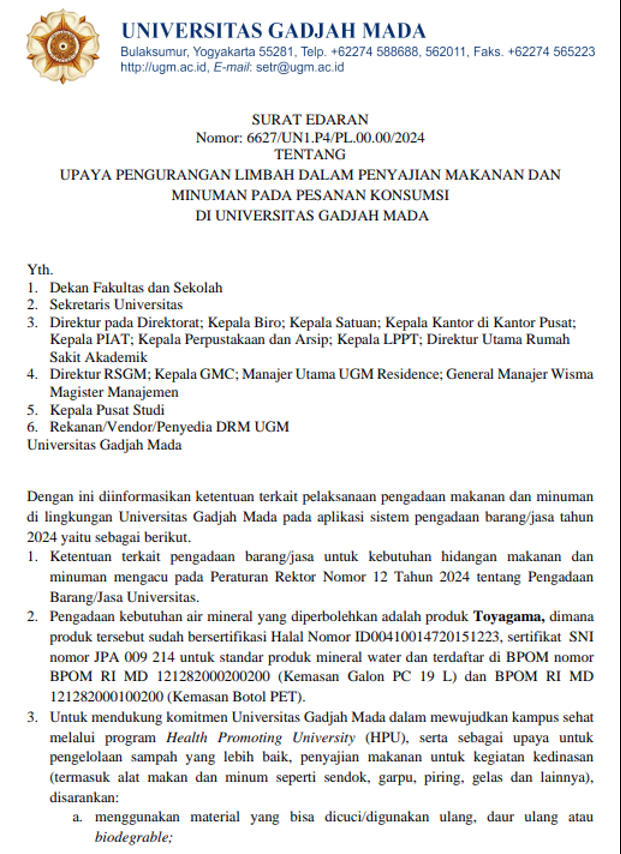


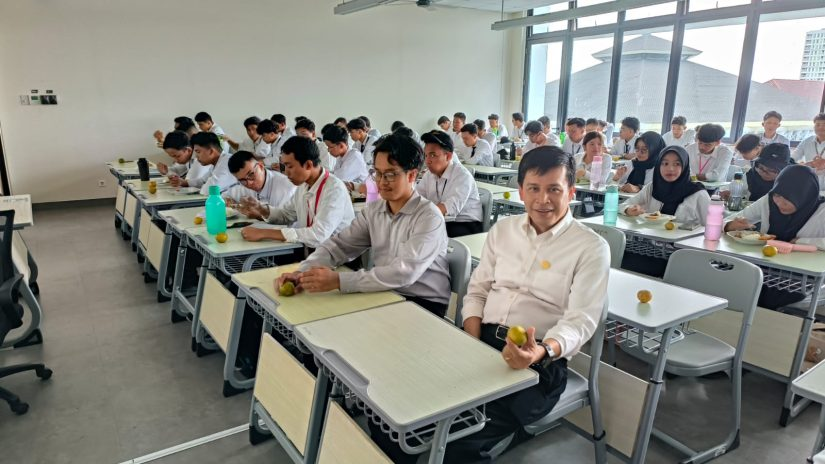
c. Catering Services Guidelines
UGM ensures that the procurement of goods/services, including food from farming, is carried out by taking into account sustainable aspects. The University Home Affairs and Service Provision has implemented procedures to cater services for various events, routine meetings, guest visits, and activities at the University level. In providing these services, UGM prioritises nutritious food choices, affordable prices, packaged and processed with attention to health standards and environmentally friendly. The food sources served are prioritised by local farmers or fishermen, who obtain, manage, and process them in a healthy and environmentally friendly manner. In terms of providing catering from third parties, UGM also collaborates with suppliers who obtain and process food according to health standards and are environmentally friendly.
References:
